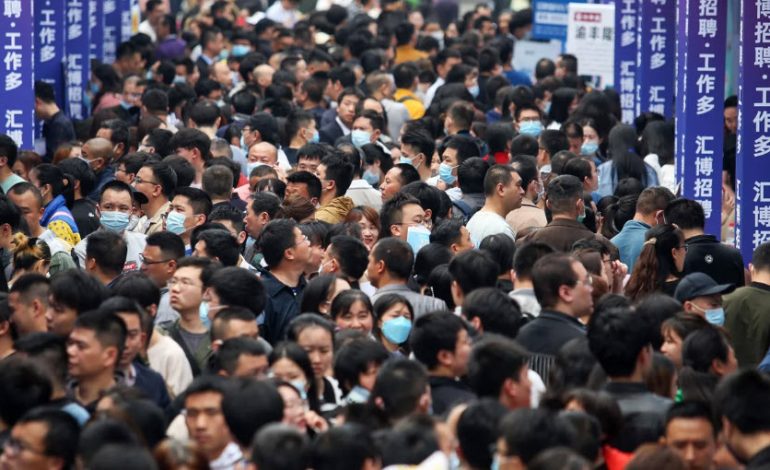
One in 5 young people in Chinese cities are out of work. Beijing wants them to work in the fields
By Laura He
30 April 2023
As the jobless rate among China’s youth soars, the country’s richest province has offered a highly controversial solution: Send 300,000 unemployed young people to the countryside for two to three years to find work.
Guangdong, the manufacturing powerhouse that abuts Hong Kong, said last month it will help college graduates and young entrepreneurs to find work in villages. It also encouraged rural youth to return to the countryside to look for jobs there.
The announcement followed President Xi Jinping’s call last December for urban youth to seek jobs in rural areas in an effort to “revitalize the rural economy,” in an echo of a previous campaign launched decades ago by former leader Mao Zedong in which tens of millions of urban youth were effectively exiled to remote areas of China.
Guangdong’s plan, which was widely panned on social media, coincided with the rate of urban unemployment among 16- to 24-year-olds surging to 19.6%, the second highest level on record.
That translates to about 11 million jobless youth in China’s cities and towns, according to CNN calculations based on the most recent available data from the National Bureau of Statistics. (China only releases urban employment figures.)
The youth unemployment rate could increase further, as a record number of 11.6 million college students are set to graduate this year and seek jobs in an already crowded market.
“If the earlier Covid-19 protests reveal anything, it’s that large numbers of angry, well-educated youth in China’s cities could present big problems for the ruling Chinese Communist Party,” said Alex Capri, a research fellow at the Hinrich Foundation, referring to demonstrations in November 2022.
“Dispersing them to smaller villages in the country side could mitigate this risk and, possibly, help diminish income disparities between China’s tier 1 and tier 2 cities and the poorer areas of the country.”
Surging unemployment among young people is largely a result of China’s economic slowdown.
The government’s now-defunct draconian Covid policy hammered consumer spending and hit small business hard in the past three years. A regulatory crackdown on internet, real estate and education companies also hurt the private sector, which provides more than 80% of jobs in China.
China’s youth are the most educated in decades, with record numbers of graduates from colleges and vocational schools. But they also face a growing mismatch between their expectations and opportunities as the economy slows significantly.
Frustrated by mounting uncertainties and a lack of social mobility, young people are increasingly losing hope that a college degree can bring the same returns it once did.


